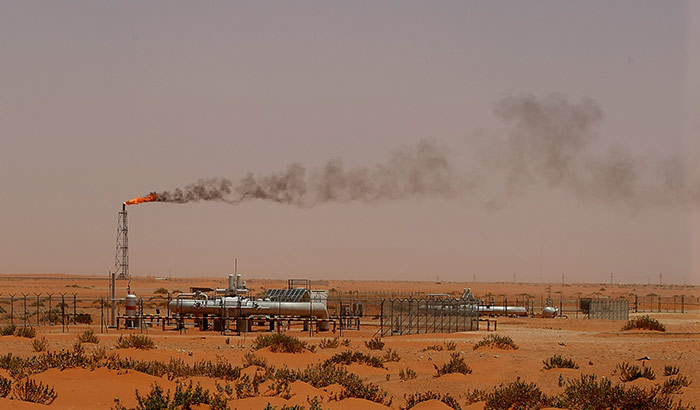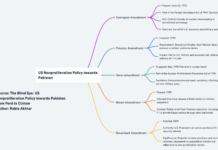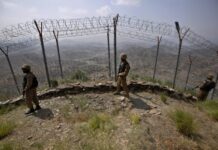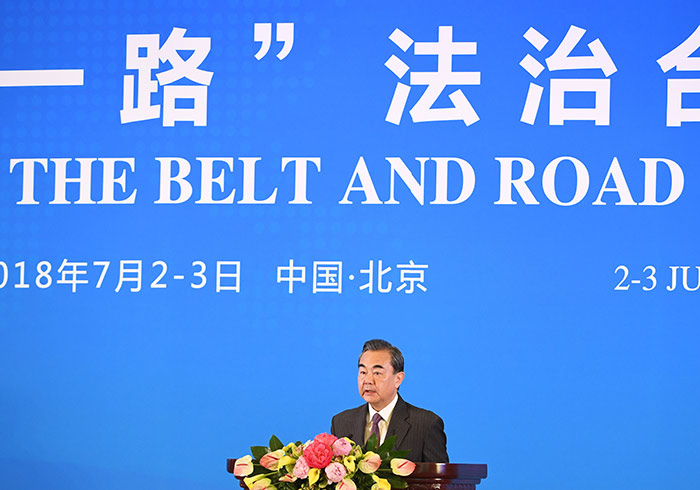Kishwar Munir
The China-Pakistan Economic Corridor (CPEC) is an inclusive project with an estimated value of $65 billion and has a great potential of integrating the regions i.e. Asia, Middle East, Central Asia and Africa through the creation of economic and strategic environment. The corridor is set to accelerate the commercial and economic activities in the region and create new opportunities for regional development. The model of economic corridors comes from transport corridor i.e. the ways to connect one economic center with the other. Transport corridors can integrate the economies of one region with the other but it requires a great deal of energy and improved infrastructure to develop as economic corridor.
Being the central plank of the Belt and Road Initiative ( BRI), CPEC connects maritime route in South East Asia and land route in Eurasia which runs through the most crucial geo-strategic location in South Asia. CPEC is the avenue of opportunities for millions of people of the region as it has the potential to increase trade linkages; amplify socio-cultural and socio-economic connectivity among people. It is a bilateral project between China and Pakistan but other states can plug-in to join the project. The inclusion of other countries in the project will help to minimize the apprehensions and concerns of the regional and extra regional actors related to CPEC. Pakistan should make this corridor an area of connectivity that can benefit this region.
Pakistan’s geographical location, if used, can benefit not only Pakistan but all the countries who will be investing in CPEC. Iran, Afghanistan and India are the natural beneficiaries of the project and Saudi Arabia, Turkey, Central Asian states and Russia can join the project. To make CPEC fully active and operational, Pakistan needs investment, which is expected from Saudi Arabia and China since both share close strategic relations with Pakistan. It is in the best interest of Pakistan to offer new investment opportunity to all those who wish to join. The states that can become part of CPEC include Afghanistan, Iran, Singapore, and Japan.
Saudi Arabia has been asked to join CPEC formally by Pakistan’s Prime Minister, Imran Khan, in his first visit to Saudi Arabia last month to invest heavily in the bilateral infrastructure and industrial development project. The visit was multi-faceted that affords a better understanding of why Pakistan’s Chief of Army Staff, Gen. Bajwa visited China at the same time. Pakistan is grappling with an economic crisis and looking for an increase in its foreign-exchange reserves aimed at exploring new economic investment opportunities to avoid going to the IMF. In the past, Saudi Arabia has financially bailed-out Pakistan during economic crises. It had loaned Pakistan $1.5 billion in 2014 to strengthen its Rupee currency after Pakistan obtained its IMF bailout package.
Prospects and Challenges of Saudi Arabia’s Inclusion in CPEC
With the inclusion of Saudi Arabia in CPEC, the investment of $10 billion is expected in the shape of Foreign Direct Investment (FDI). Along with FDI, Pakistan can also get deferred payment on oil which can ease the burden on Pakistan’s foreign exchange reserves. KSA can invest in special economic zones which will create jobs for the locals and duty free structure will benefit investors. Pakistan can also get parking money from Saudi Arabia. With bilateral and multilateral funding assistance from Saudi Arabia, China and development banks, Pakistan can improve infrastructure and enhanced connectivity with the region.
With the opening of CPEC, new opportunities for other countries to invest have arisen. Iran is facing pressure from the United States which can push it towards China for seeking new opportunities in providing gas and oil routes to China. Turkey is another key economic entity in the region at the center of Eurasia neighboring Syria and Iran. The physical connectivity offers an opportunity to enhance trade between Iran, Pakistan and Turkey and it is a natural corridor for Pakistan to get access to Turkey via Iran. The CPEC can be utilized to strengthen socio-economic development of the trio that did not materialize under a previous regional cooperation, signed by the three countries in 1964. One of the obstacles in realizing this dream is that both Turkey and Iran had opposite interests in Syria.

The Saudi investment in Gwadar will further augment its value in comparison to Iran’s Chahbahar port. It will give KSA access to the Indian Ocean and the Arabian Sea which will help it in accessing Central Asian markets. Saudi Arabia has stakes in Central Asian States and hence may show eagerness in making investments in Pakistan.
Challenges
There are two different views on Riyadh’s inclusion in CPEC and its implication on Pakistan. First, Pakistan’s offer to Saudi Arabia to join CPEC will put question marks on its neutrality in the Middle East and nature of its relations with Iran. Riyadh and UAE’s investment in Gwadar and various infrastructures will increase their stakes in Pakistan. Second, if Iran joins CPEC or invests in gas sector in Balochistan, its stakes in the country will increase. The induction of both Saudi Arabia and Iran in CPEC will put the interests of both countries at one place. This will provide Pakistan with the leverage to mediate between the two rivals in the Middle East.
Pakistan’s assurances to Saudi Arabia that it will provide security and strategic support to the country wherever needed, have multiple repercussions. The previous government of Nawaz Sharif, despite its family relations with Saudi Arabia, resisted KSA’s demand to deploy Pakistani troops in Yemen. The new government may concede to Saudi Arabia in future by giving it the space to invest in Gwadar. Prime Minister Imran Khan reiterated that Pakistan will always stand with Saudi Arabia in difficult times and would not let any other country attack it. However in the same vein, Khan has asserted the importance of resolving all conflicts in the Muslim world through dialogue. Khan expressed this view in an interview with Saudi Gazette when he was asked about attacks by Houthi militia on Saudi territory. However, Saudi Arabia’s inclusion in CPEC will test Islamabad’s policy over Yemen and other Middle Eastern conflicts.
Iran, India and Afghanistan: Natural Beneficiaries of the CPEC
Pakistan is located on the crossroads of the ancient land route of India to Turkey via Iran. India can expect economic benefits from this flagship project of BRI by opening up new channels of communication through Pakistan to reach out to Turkey, Iran, Afghanistan and Central Asian states. However, its historic rivalry with Pakistan might not allow it to realize these economic benefits with an open mind. Both states house a billion plus people out of which millions are living under the poverty line. Both states should be responsive to the idea of dialogue. CPEC can be bolstered by extending it to India through subsidiary links from Punjab which can be useful in turning the mutual security threat suspicion to benefit. On the other side, Iran-Pakistan-India gas pipeline project can fulfill the energy needs of India by streamlining it into CPEC.
Afghanistan has immense geo-strategic importance in the calculus of China and Pakistan as it provides direct access to Central Asian states and then Russia. But realization of the economic opportunities generated by CPEC depends on peace and stability in Afghanistan. Instability in Afghanistan will not only affect Pakistan but Iran, Russia and China also. Pakistan and Afghanistan in their recent engagement showed their resolve to end cross-border terrorism and militancy.
CPEC is a bilateral project in which induction of any other country has to have consensus of both countries. The inclusion of Saudi Arabia in CPEC holds its risks and opportunities but China will be the beneficiary of this as it will open new doors for it in the Middle East and offer more energy resources to achieve its grand strategic plan of transporting oil. For Pakistan, it is important to revisit its foreign policy by breaking from the status quo and encouraging multiple actors in the region to join CPEC to create a win-win scenario for all stakeholders.
Kishwar Munir is a Lecturer at the School of Integrated Social Sciences, University of Lahore.

















